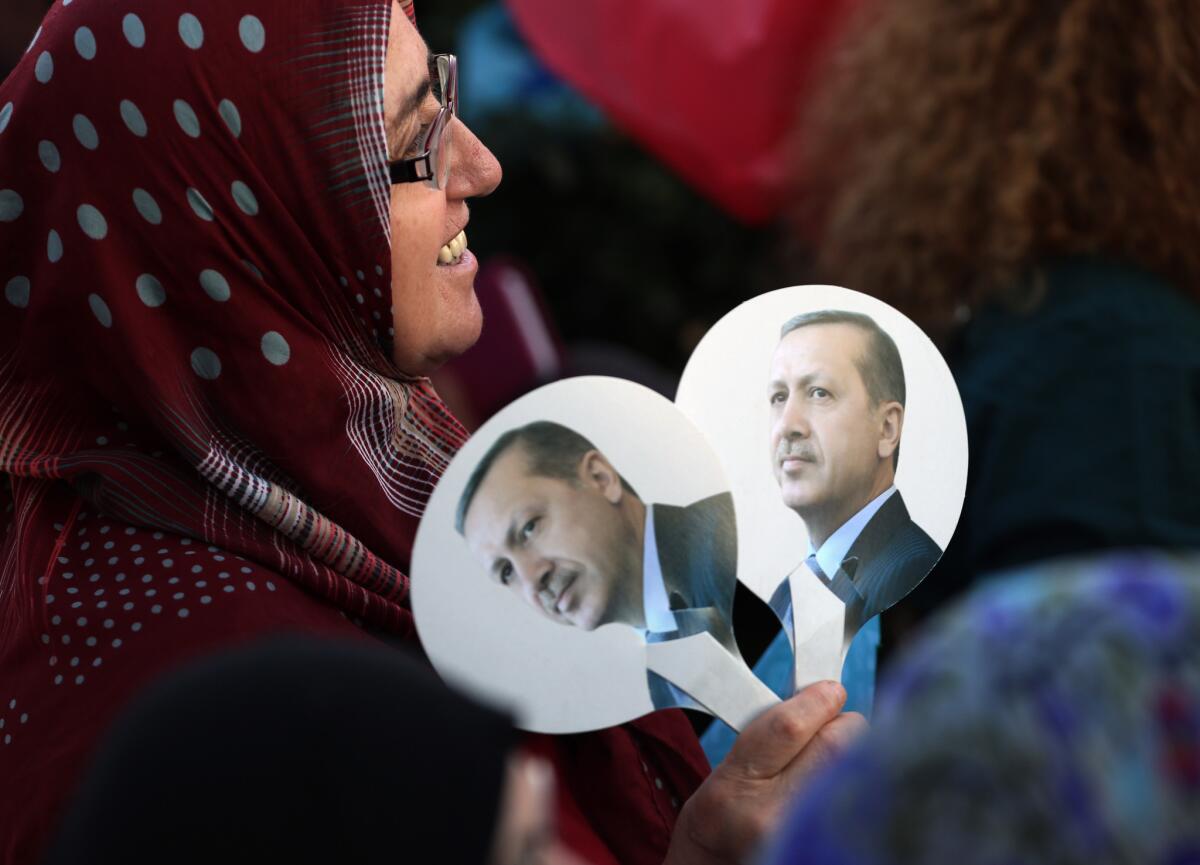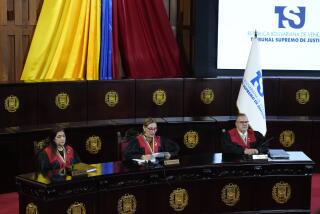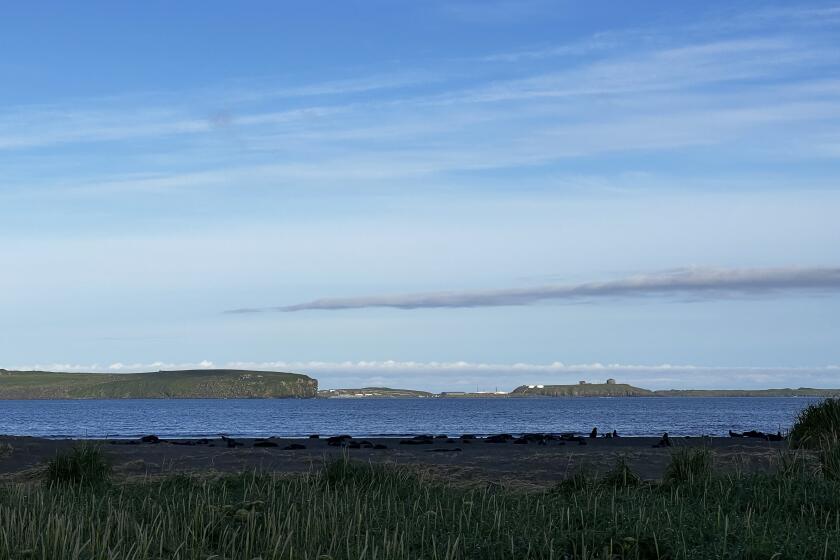Divisive Erdogan likely to win Turkey’s first direct presidential vote

In spite of scandal, protest and controversy that have dogged his dozen years as Turkish prime minister, Recep Tayyip Erdogan is expected to win the nation’s first direct presidential election on Sunday.
And the 60-year-old Islamist has made no secret of his intent to transform the mostly symbolic office into the true center of power in the country of 76 million.
Erdogan, through the Justice and Development Party he heads, has already tried and failed to enhance the authority of the presidency that he has unabashedly aspired to for the last few years.
“A president elected by the people cannot be like the previous ones. As the head of the executive, the president uses all his constitutional powers. If I am elected president, I will also use all of them. I won’t be a president of protocol,” he was quoted by the Hurriyet Daily News as telling his party colleagues in May.
Justice and Development deputies are short of the two-thirds majority needed in parliament to revise the constitution to transform Turkey’s system of governance from a parliamentary democracy to one governed by a powerful head of state. Erdogan may be counting on a strong enough showing in parliamentary elections next year to push through the constitutional amendments, but in the meantime he claims authority already exists to call and preside over Cabinet meetings.
Erdogan has been the center of controversy for the last two years, starting with his party’s efforts to impose Islamic values on the secular country, including new restrictions on the sale of alcohol.
His backing of a high-rise redevelopment project in Istanbul that has uprooted a popular central park sparked angry protests in the spring of 2013 that went on for weeks. The protests were met with a harsh police crackdown in which at least five demonstrators were killed.
Erdogan, his son and some of the government’s top ministers were engulfed in a corruption scandal stemming from clandestine videos and audio recordings released in December that purported to show them plotting to fix contracts and loot banks of public funds. The prime minister’s ire at the accusations of wrongdoing by those closest to him was muted by imposing bans on YouTube, Twitter and other social media spreading the scandalous charges -- short-lived due to court orders to cease blocking the media.
In March, when an explosion at a mine in the Kurdish area around Soma killed 301 miners, Erdogan angered grieving relatives when he brushed off the tragedy as a common occurrence in the history of the industry.
But his modernization drive since coming to power as government chief in 2002 has created jobs and lifted millions of Turks from poverty, buying him support and respect from his party’s conservative and religious core constituents. His influence over Turkish media has also allowed his campaign to dominate the airways.
The Guardian newspaper quoted local media calculations that showed state broadcaster TRT spent 533 minutes -- almost nine hours -- covering Erdogan rallies over a three-day period in early July, compared with 3 minutes on his closest rival, academic and former diplomat Ekmeleddin Ihsanoglu, and only 45 seconds on the No. 3 candidate, Kurdish politician Selahattin Demirtas.
Ihsanoglu was chosen to jointly run for two prominent opposition factions, the Republican People’s Party and the Nationalists. The soft-spoken 70-year-old has campaigned on a theme of national unity and, the antithesis of Erdogan, supports the tradition of Turkey’s head of state remaining above partisan politics. But Ihsanoglu trails Erdogan by 17 percentage points -- 55% to 38% -- in polls, making the prime minister a likely first-round winner.
Demirtas, the charismatic 41-year-old co-chairman of the People’s Democratic Party, is projected to win no more than 8% of the vote but could be instrumental in steering the Aug. 24 runoff election to Ihsanoglu should Erdogan fail to garner a majority on Sunday.
Political analysts say that with the outcome almost assured, what will tell them most about the future of Turkey’s leadership under a President Erdogan will be his choice for who succeeds him in the prime minister’s office and as Justice and Development Party chief.
In an analysis of the Turkish political scene for Al Jazeera, Furman University political science professor A. Kadir Yildirim pondered the possibility of a Kremlin-like swap of roles, with outgoing President Abdullah Gul replacing Erdogan as government leader, as Russian President Vladimir Putin finessed his lock on the levers of power by appointing a pliable successor in Prime Minister Dmitry Medvedev.
Gul is popular with the ruling party’s leading figures, and a recent poll shows an overwhelming majority in favor of the president succeeding Erdogan, although the latter may have concerns about his influence over the elder politician diminishing with time, Yildirim said.
“He wants to continue to be involved in the running of the country, so that in a way he wants to be both president and prime minister at the same time,” Sinan Ulgen, a visiting fellow at the Carnegie Europe think tank, said in a telephone interview from Istanbul.
Erdogan can be expected to exercise the current powers of the presidency to their maximum extent, then table wholesale constitutional reform to change Turkey’s system of leadership to a powerful presidency after the 2015 parliamentary elections in which he hopes to garner the two-thirds majority he needs, Ulgen predicted.
Follow @cjwilliamslat for the latest international news 24/7
More to Read
Sign up for Essential California
The most important California stories and recommendations in your inbox every morning.
You may occasionally receive promotional content from the Los Angeles Times.











